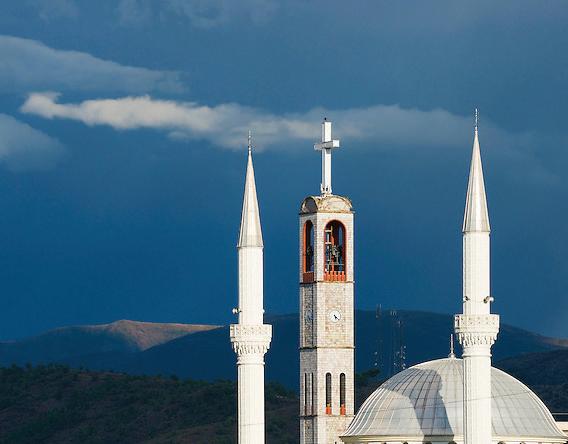3 minute read
IS MISSION RACIST? How is
Next Article
DRAWING
ON HER FAMILY’S OWN MISSIONARY
HISTORY, COLUMNIST NATALIA-NANA LESTER-BUSH INVITES US TO WRESTLE WITH THE OXYMORONS EMBEDDED IN OUR FAITH AND IN WESTERN THOUGHT
My grandfather was a Church of England vicar. In his younger years, he was a Christian missionary in Kenya. My mum, his beloved daughterin-law, has often told me the story of when grandad was accosted by the freedom-fighting politician Jaramogi Ajuma Oginga Odinga. Pointing his finger at Alfred, Odinga passionately declared that one day the white men would be out of his (then-still colonised) country! It was bizarre for me to hear of this happening to my dear grandfather who was in Kenya with only kind and loving motivations of service.
Yet the story illustrated to me at an early age how our behaviour on a micro, personal level is invisibly entwined and impacted by wider systems and behaviours beyond our immediate reach. It introduced me to the heavy truth that one’s good intentions don’t negate or protect you from having an unintended negative impact. I discovered you can be a kind and wellintentioned person, faithfully trying to help people on the micro-scale of personal service and simultaneously be participating in something which is eroding and damaging countries and cultures.
This heavy but helpful awareness has been fundamental in embolden-ing me to critique my Christian faith and to question the concepts and outworking of ‘mission’. I imagine Jesus would be proud of this questioning. The Pharisees and Sadducees meant well – their calling was to help people obey the law and thus stay in right relationship with God. And yet we see time and time again how Jesus corrected and challenged their teachings, rules and behaviours. In questioning how race and racism can, and sadly often do, show up in mission, we need to be bold and lean into discomfort like Jesus.
The original title of this column – taken from the BMS seminar at Baptist Assembly, where I was a panelist - asks if mission is racist. A better question would be: ‘How is mission racist?’. This an exploration not an accusation. It takes as its starting point that just as, sadly and sinfully, racism and racial inequality are entrenched across vast areas of life, globally and locally, interpersonally and institutionally, racial inequality and racism are a part of mission. On a deeper level, this question is underpinned by a recognition that every single country has been affected by the transatlantic slave trade and colonialism. And that these two historic evils have made the Global North’s white-majority countries the power-holders of the world. The question ‘How is mission racist?’ accepts the reality that our attitudes and practices of mission, based on the whiter parts of the world travelling to brown and black-majority countries, are inevitably affected by race and racism.
That is an uncomfortable truth against which you may recoil. Yet to recognise that racism plays a role in mission is not to say that all missionaries or mission organisations are “racist” - my gramps certainly wasn’t! Instead, it recognises that some ideas about race and racism infect us all. Unless we bravely let the Holy Spirit guide, challenge and correct, we are likely to perpetuate what we are too proud to see, or too scared to hear.
The Holy Spirit is expanding my picture and understanding of the Church and strengthening me to wrestle with how Christianity and Christians - including good, kind, Christians like my beloved grandfather - bless and burden the world. It’s a messy and uncomfortable reality. We reflexively want to defend missionaries’ good intentions and to list the vast good that Christianity brings to the world. I encourage us instead to sit and wrestle with the messier truth that mission has been, and continues to be, a mix of blessing and burden. It reminds us that our faith is full of wonderful, confusing oxymorons - a Lord who is a baby and God; an executed Messiah who is a saviour king. It is not only safe but natural and good for us to explore the oxymorons in our mission; to boldly consider that, while we seek to be bringers of the gospel across the world, because of the racism we have absorbed we can all too often also be bearers of inequality.
I leave you a challenge and a liberating invitation, extended by Kang-San Tan and Benno van der Toren:
“People need to be able to see and experience the fruits of healing and liberation in the Christian community ... In the context of colonialism, Christianity has been associated with powers that oppress and enslave rather than liberate. Embodied apologetic witness demands that these dark sides of Christian history are recognised, and the Christian community shows genuine repentance and desire to be a healing presence. It also begins with recognition that community itself remains in need of healing.”









